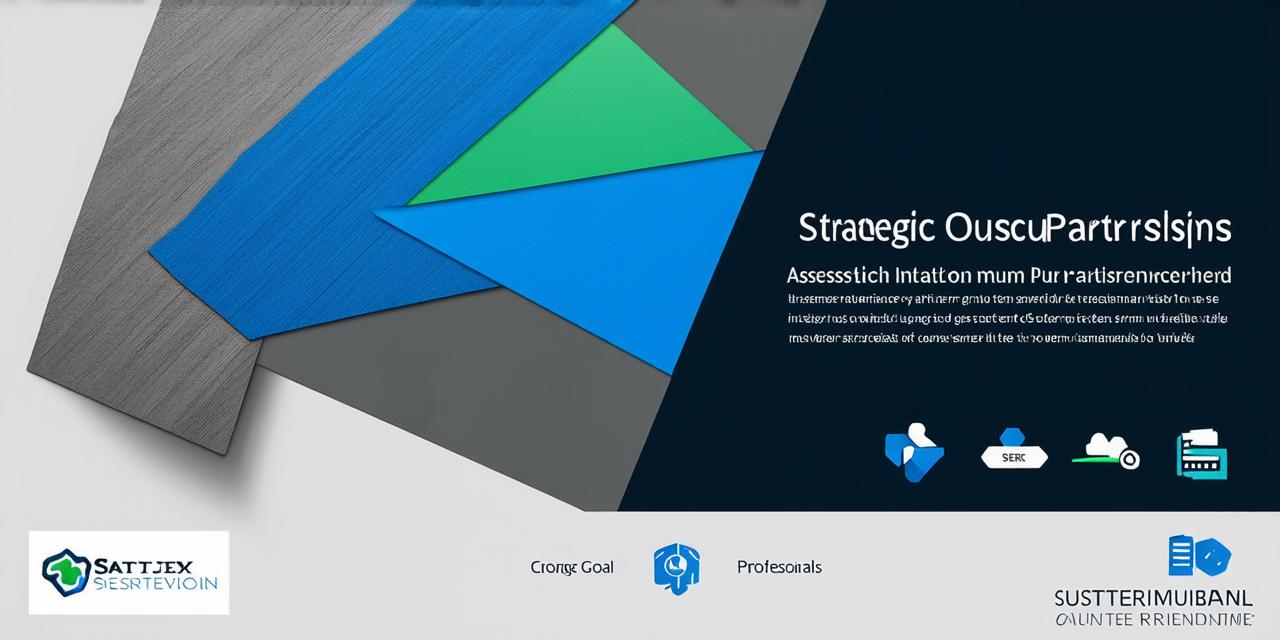Assessing Long-Term Outsourcing Partnerships
I. Introduction
In today’s competitive business environment, companies are constantly looking for ways to streamline operations, reduce costs, and improve efficiency. Outsourcing has become an increasingly popular strategy for achieving these goals. By partnering with a third-party provider to handle specific tasks or processes, businesses can focus on their core competencies and reduce costs. However, choosing the right outsourcing partner and maintaining a successful long-term partnership is not without challenges. In this guide, we will explore the key factors to consider when assessing long-term outsourcing partnerships and provide real-life examples to illustrate best practices.
II. The Benefits of Long-Term Outsourcing Partnerships
Cost Savings
One of the primary benefits of outsourcing is cost savings. By partnering with a third-party provider, businesses can reduce their overhead costs by outsourcing tasks that would otherwise require significant investments in technology, infrastructure, and personnel. For example, companies can outsource IT support services, customer service, or logistics operations to reduce the cost of maintaining their own IT systems, hiring and training staff, or managing their supply chain.
Improved Efficiency
Outsourcing also enables businesses to improve efficiency by allowing them to focus on their core competencies and delegate non-core activities to a third-party provider. This can help companies reduce cycle times, improve productivity, and increase capacity. For example, by outsourcing accounting or financial services, businesses can free up time and resources to focus on strategic initiatives that align with their core competencies.
Access to Expertise
Outsourcing also provides access to expertise that may not be available in-house. Third-party providers often have specialized skills and knowledge that can help businesses improve the quality of their products or services. For example, by outsourcing product development or research and development activities, businesses can tap into the expertise of specialized teams with experience in these areas.
III. Key Factors to Consider When Assessing Long-Term Outsourcing Partnerships
Alignment of Goals and Objectives
The first key factor to consider when assessing long-term outsourcing partnerships is the alignment of goals and objectives. Businesses should carefully evaluate their own goals and objectives and ensure that these align with those of their potential partner. This can help ensure that both parties are working towards a common goal and that there is mutual benefit in the partnership.
Cultural Fit
Cultural fit is another important factor to consider when assessing long-term outsourcing partnerships. Businesses should evaluate their own organizational culture and values and ensure that these align with those of their potential partner. This can help ensure that there are no cultural misunderstandings or conflicts that could hinder the success of the partnership.
Communication and Collaboration

Effective communication and collaboration are critical to the success of any outsourcing partnership. Businesses should establish clear lines of communication with their potential partner and develop processes for regular feedback and collaboration. This can help ensure that both parties are on the same page and working towards a common goal.
Quality Control and Metrics
Quality control and metrics are essential components of any outsourcing partnership. Businesses should establish clear quality control measures and metrics to measure the success of the partnership. This can help ensure that both parties are meeting their obligations and delivering high-quality products or services.
Contractual Agreements
Contractual agreements are critical to any outsourcing partnership. Businesses should carefully evaluate their potential partner’s contractual terms and ensure that they align with their own needs and requirements. This can help ensure that both parties are on the same page and that there is mutual benefit in the partnership.
IV. Real-Life Examples of Successful Long-Term Outsourcing Partnerships
Dell and Infosys
Dell and Infosys have had a successful long-term outsourcing partnership that has lasted over 20 years.
